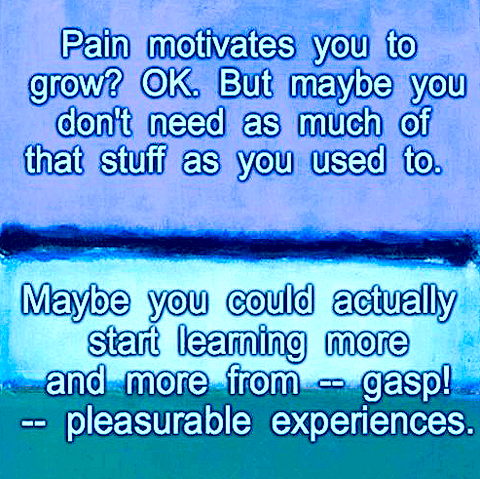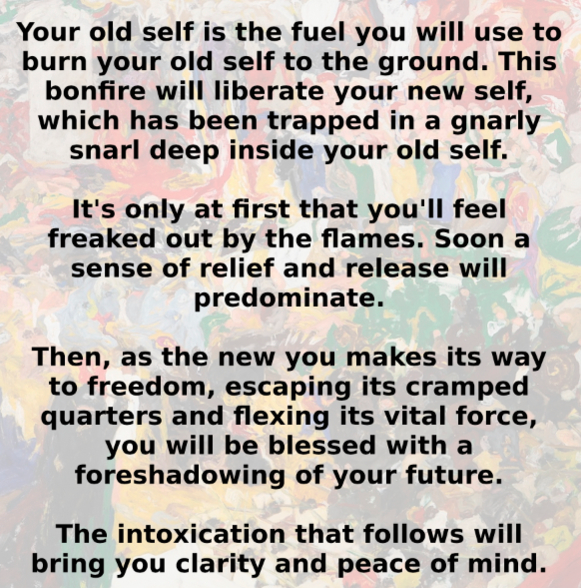Week of July 20th, 2023
All Omens Should Be Interpreted Favorably
EXPLORE THE BIG PICTURE OF YOUR LIFEwith my MID-YEAR AUDIO PREVIEW of YOUR DESTINY
for the REST of 2023 and beyond.
I have created Expanded Audio Horoscopes that explore themes I suspect will be important for you during the coming months.
What areas of your life are likely to receive unexpected assistance and divine inspiration?
Where are you likely to find most success?
How can you best cooperate with the cosmic rhythms?
What questions should you be asking?
To listen to my IN-DEPTH, LONG-TERM AUDIO FORECAST for YOUR LIFE during the next six months, go here, then register and/or sign in.
After you log in through the main page, click on the link "Long-Term Forecast for Second Half of 2023."
+
The Expanded Audio Horoscopes cost $7 apiece if you access them on the Web. There are discounts for the purchase of multiple reports.
You can also hear a short-term forecast for the week ahead by clicking on "This week (July 18, 2023)."

Here's a link to my free weekly email newsletter, featuring the Free Will Astrology horoscopes, plus a celebratory array of tender rants, lyrical excitements, poetic philosophy, and joyous adventures in consciousness.
It arrives every Tuesday morning by 7:30 am.
Sign up here for your subscription.

Hypothesis: All omens should be interpreted favorably.
All omens should be regarded as revelations about what can be done to successfully wrangle with our problems, perpetrate liberation, ameliorate suffering, find redemption, avoid trouble, and perform the tricky maneuvers and ingenious tweaks that enable us to slip free of our mind-forged manacles and discover the deeper meanings behind and beneath our experiences.

THERE'S NO SHAME . . .
PSA: There is no shame in admitting that you were previously speaking from a less informed place. There’s a lot of info in the world. No one has all of it. We do our best, and at your best, we help each other learn.
—Kelly M. Hayes

GO TO THE LIMITS OF YOUR LONGING'
God speaks to each of us as he makes us,
then walks with us silently out of the night.
These are the words we dimly hear:
You, sent out beyond your recall,
go to the limits of your longing.
Embody me.
Flare up like a flame
and make big shadows I can move in.
Let everything happen to you: beauty and terror.
Just keep going. No feeling is final.
Don't let yourself lose me.
Nearby is the country they call life.
You will know it by its seriousness.
Give me your hand.
—Rainer Maria Rilke, translated by Joanna Macy and Anita Barrows

WE CHANGE EVERYTHING
We change everything we look at by looking at and forming ideas about it. So why not work as makers of meaning as much as understanders of meaning? Why not proceed on the hypothesis that our highest expression, our way of participating with the Divine Intelligence, is to create?
We could regard spiritual practice to be as much about play as about worship—changing what we're given even more than figuring out what we're given; artistry more than piety.
Since we can't possibly know what's ultimately true, why don't we create love and beauty and enchantment as much as possible?
Inspired by my old teacher Norman O. Brown, I aspire to find "words used not to interpret the world but to change it; not to advertise this world but to find another. To pass from this world to the next; from ordinary to extraordinary language."

To all I care about, here’s a friendly tip: enlightenment is gaffe upon error upon blooper.
— Ikkyu

THE MARVELOUS WOMEN
by Mohja Kahf
All women speak two languages:
the language of men
and the language of silent suffering.
Some women speak a third,
the language of queens.
They are marvelous
and they are my friends.
My friends give me poetry.
If it were not for them
I’d be a seamstress out of work.
They send me their dresses
and I sew together poems,
enormous sails for ocean journeys.
My marvelous friends, these women
who are elegant and fix engines,
who teach gynecology and literacy,
and work in jails and sing and sculpt
and paint the ninety-nine names,
who keep each other’s secrets
and pass on each other’s spirits
like small packets of leavening,
it is from you I fashion poetry.
I scoop up, in handfuls, glittering
sequins that fall from your bodies
as you fall in love, marry, divorce,
get custody, get cats, enter
supreme courts of justice,
argue with God.
You rescuers on galloping steeds
of the weak and the wounded–
Creatures of beauty and passion,
powerful workers in love–
you are the poems.
I am only your stenographer.
I am the hungry transcriber
of the conjuring recipes you hoard
in the chests of your great-grandmothers.
My marvelous friends—the women
of brilliance in my life,
who levitate my daughters,
you are a coat of many colors
in silk tie-dye so gossamer
it can be crumpled in one hand.
You houris, you mermaids, swimmers
in dangerous waters, defiers of sharks–
My marvelous friends,
thirsty Hagars and laughing Sarahs,
you eloquent radio Aishas,
Marys drinking the secret
milkshakes of heaven,
slinky Zuleikas of desire,
gay Walladas, Harriets
parting the sea, Esthers in the palace,
Penelopes of patient scheming,
you are the last hope of the shrinking women.
You are the last hand to the fallen knights
You are the only epics left in the world
Come with me, come with poetry
Jump on this wild chariot, hurry–
by Mohja Kahf

My book
Pronoia Is the Antidote for Paranoia is available at Amazon and Powells and Bookshop.org
Here are excerpts:
SOME THINGS ARE BETTER THAN THEY USED TO BE
According to Noble Prize-winning economic historian Robert Fogel, human biology has changed dramatically in the past three centuries, and especially in the last 100 years. People in the developed world live twice as long as they used to. They weigh more and grow taller. They're far hardier and healthier and smarter. When sickness comes, they're better at defeating it than their ancestors were, and they're not as likely to contract diseases in the first place.
"We're just not falling apart like we used to," Fogel says. "Even our internal organs are stronger and better formed." What has occurred is "not only unique to humankind, but unique among the 7,000 or so generations of human beings who have inhabited the earth."
We're talking about a revolution. In the mid-19th century, Americans of all ages were much sicker than they are now. Child mortality was almost 25 percent, and of those kids lucky enough to survive into adolescence, 15 percent more expired before age 15. Chronic malnutrition was a horrendous curse, compromising immune systems from birth.
During the Civil War, one-sixth of the teenagers who applied to serve in the Union army were rejected because of chronic ailments like malaria, tuberculosis, arthritis, cardiovascular problems, and hernias. As for the older folks, the average ex-soldier in his 60s had at least six health problems, four more than a sexagenarian is likely to have today.
What happened between then and now? First, we harnessed electricity, made it universally available, and used it in a myriad ways to improve our lot. All of the other boons I'm about to name—improvements in our diet, medicine, sanitation, and workload—were organized around this fantastic, unprophesied new resource.
Our relationship with food has changed dramatically in the last century and a half. We discovered more accurate information about our nutritional needs and gained access to a greater variety and abundance of food.
The perfection of the science of refrigeration and the eventual universal availability of refrigerators made a big difference, too. Victory over widespread malnutrition meant that infants got a better start on building strong bodies, making them less susceptible to sickness throughout the course of their lives.
The drastic upgrade in the state of the human body was also made possible by steadily growing medical expertise, including the discovery of the germ theory of disease and radical new treatments like antibiotics and vaccination.
Physicians got better training, large numbers of new hospitals opened, and more people made medicine their career. Among the diseases that were wiped out were diphtheria, typhoid, cholera, whooping cough, tetanus, tuberculosis, smallpox, and polio.
Innovations in sanitation have been key to the upgrades in the way our bodies work. Everything and everyone are far cleaner than they used to be. People bathe more frequently and devote more attention to their hygiene.
Among the most important developments in this triumph were two practical miracles: indoor plumbing and the installation of municipal sewer systems. It took a while. As late as 1920, only one in 100 American homes had a toilet or even a bathroom—outhouses were standard—and toilet paper was a luxury.
For those few with bathtubs, a full-body cleanse was often a once-a-week ritual, and entire families might use the same bathwater. Fogel says that even into the early 1900s, "Chicago exported a lot of typhoid down to St. Louis," by disposing wastewater in the Illinois River.
Garbage disposal used to be a hit-and-miss proposition until the 20th century. Private citizens might bury their refuse in their backyards, take it to public incinerators, or offer it to pigs at local farms. But eventually, local governments took over the task. During my lifetime, every city where I've lived has done a stellar job of hauling my trash away.
In the middle of the 19th century, the average American worked 78 hours a week, often at exhausting manual labor and without the help of machines. As work became easier and of shorter duration, our health soared. Technological aids like washing machines and automatic heating systems also contributed to the rising tide of physical well-being.
All of the improvements I've mentioned have flourished because of the most important change of all: greater wealth and more available resources. Despite periodic economic downturns, per capita income in the developing nations has grown enormously in the last 150 years.
Elsewhere, too: Wealth in India and China has doubled since 1989, according to The Economist magazine. As a result, more of us have been able to afford to take better care of ourselves. And more of us have been able to do the research and experimentation and development that advance the common good.
Even poor people are better off than they used to be. During the 17+ years when my annual income was less than $10,000, well below the official poverty line, I had many amenities the average American didn't have in 1900: electricity, telephone, bathtub, toilet, hot running water, refrigerator, radio, electric hotplate, space heater, TV, cassette player, shampoo, public transportation, asthma medicine, access to a laundromat, garbage collection, and sewer system.
—excerpted from Pronoia Is the Antidote for Paranoia: How the Whole World Is Conspiring to Shower You with Blessings

YOUR YEARNING FOR LOVE
I invite you to meditate on the relentlessness of your yearning for love. Recognize the fact that your eternal longing will never leave you in peace. Accept that it will forever delight you, torment you, inspire you, and bewilder you — whether you are alone or in the throes of a complicated relationship.
Understand that your desire for love will just keep coming and coming and coming, keeping you slightly off-balance and pushing you to constantly revise your ideas about who you are.
Now read this declaration from the poet Rilke and claim it as your own: "My blood is alive with many voices that tell me I am made of longing."
Anything you want to add?

ESCAPE SONG
There is no steady path,
no unwavering way forward,
no clear strong signal from the future
guiding us home.
Or is there?
And we just haven't learned yet
how to request new passwords
and decipher the trick questions?
Even the polestar is obscured by pretty clouds,
surplus eclipses,
flocks of night birds,
aurora borealis,
beloved and torturous memories
firing in our neurons.
Or maybe not:
if we could figure out
how to fool
the foolers.
What's the difference
between a maze and a labyrinth?
We can't tell.
We wander in the mess
of overlapping convolutions.
Forgetting to sing
the Escape Song.
—by me

Remember that at any given moment there are a thousand things you can love.
—author David Levithan




